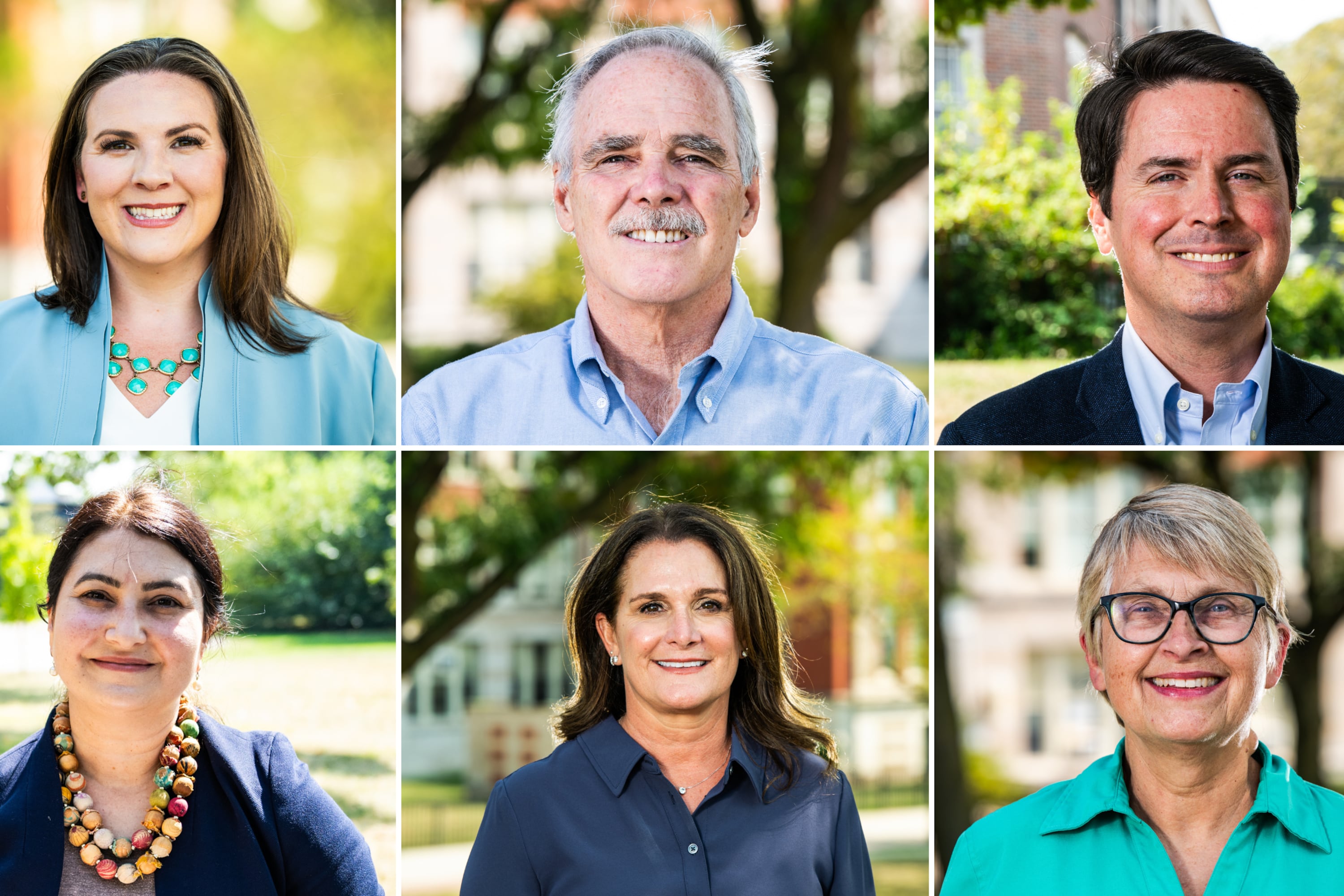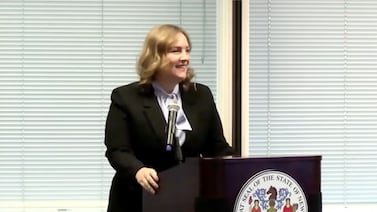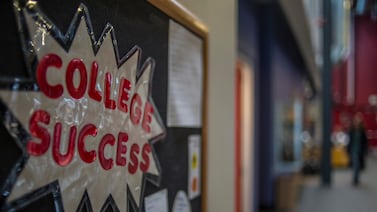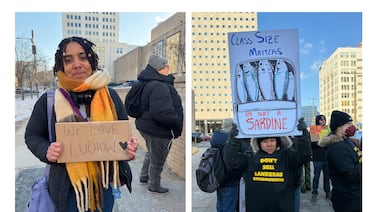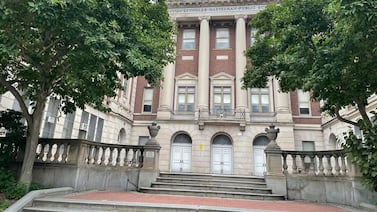Sign up for Chalkbeat Chicago’s free daily newsletter to keep up with the latest education news.
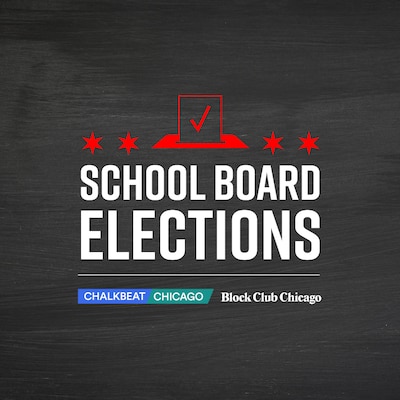
Voters in District 4 on Chicago’s north lakefront will choose from the largest pool of school board candidates in the city.
Six people are running in District 4, which covers several neighborhoods, including Lincoln Park, Lakeview, and Uptown. The candidates are Kimberly Brown, Andrew A. Davis, Thomas Day, Carmen Gioiosa, Ellen Rosenfeld, and Karen Zaccor.
District 4 has 34 schools serving 23,494 students. There are 26 elementary schools, seven high schools, including one alternative school for students at risk of dropping out, and a two-year high school that allows students to get their associate degree. Nine of these schools are magnets, which draw students from other neighborhoods through a citywide lottery system. Chicago Public Schools recently released a new strategic plan that sets a goal to see more students choose schools in their neighborhoods.
Eleven schools in the district are among the top 10% for academic performance in the state and none were in the bottom 5%, according to state data.
There are no charters, which are privately managed schools that are publicly funded and require periodic approval from the Chicago Board of Education to keep operating.
The schools in District 4 are more diverse than the district as a whole. About 36% of CPS students in District 4 are white. Nearly 32% are Hispanic, just under 16% are Black, and 8.5% are Asian American. Overall, 46.5% of students are Hispanic, about 11% are white, and 4.4% are Asian American, according to the most recent data.
By contrast, more than 70% of all District 4 residents are white, and Hispanic and Asian American residents account for about 10% each of the population. Just under 8% of people are Black.
Thirty-eight percent of kids who go to public school in District 4 come from low-income households, less than any school board district and nearly half of the rate citywide. Just over 12% of students have disabilities, and a similar percentage are learning English as a new language.
Here’s more on each candidate.
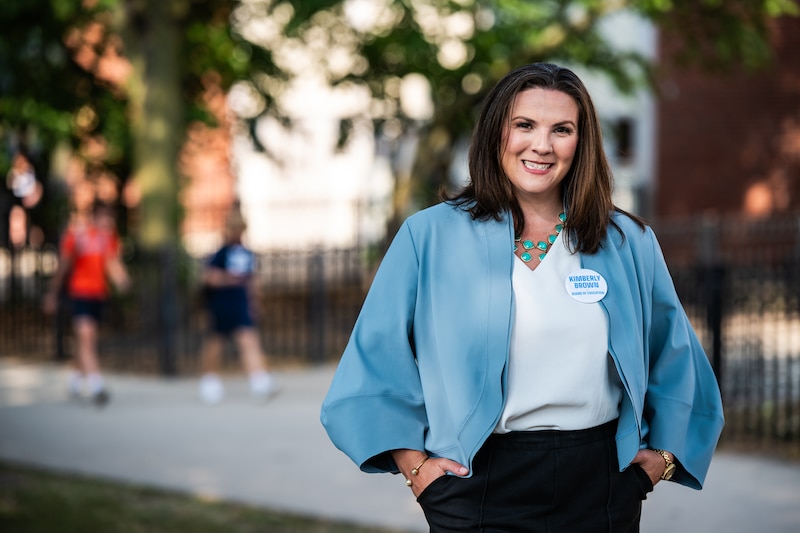
Who is Kimberly Brown?
Brown grew up in the Chicago suburbs and has lived in the city for the past 16 years. She attended Northwestern University for her bachelor’s and master’s degrees in journalism.
She and her husband have two sons, one in pre-K for 3-year-olds at a private day care and another in first grade at Nettelhorst Elementary School.
Brown is the chief marketing officer at Darley, an Itasca-based defense and space manufacturer. She is an adjunct professor at Roosevelt University and Lake Forest Graduate School of Management. She also founded a now-shuttered nonprofit called Centrally Human whose goal was to provide leadership skills and training to teens, particularly the “most disenfranchised,” according to a presentation Brown provided.
Brown says she is running because she wanted to impact her neighborhood and thinks improving public education can “change the world.”
“I now have literally just enough means to take on a volunteer job,” she said. “I believe I have the experience and empathy to be a true community leader and advocate for public education in our communities.”
Brown’s top priorities include bringing back busing for more students. The district has suspended busing for general education students, largely those who attend selective enrollment and magnet schools, since last year.
She also wants to increase revenue for the district’s budget in part by conducting a deeper analysis of the district’s financial practices and sharing those results with the public in order to spur transparency and more conversations about the budget.
The district has a landing page online for its budget that includes highlights of each year’s plan, a link to the budget book and a guide on how to read the plan. It held public budget roundtable discussions this year as it crafted its budget for this school year, but they typically had sparse attendance.
As of mid-September, Brown had raised $17,000 since launching her campaign. Of that, $6,500 came from herself and the remaining came from a mix of small donations from family and friends, according to campaign finance reports filed with the state’s Board of Elections.
Read Brown’s full questionnaire responses.
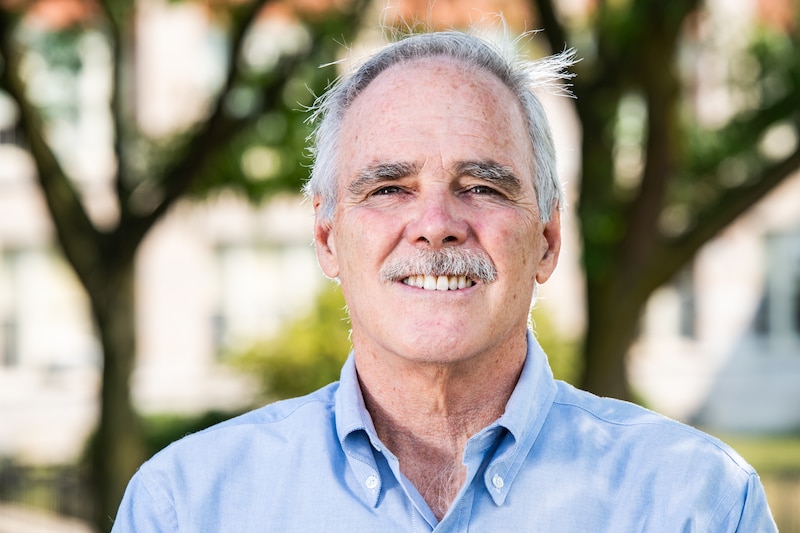
Who is Andy Davis?
Davis grew up in the Hyde Park and Kenwood neighborhoods on Chicago’s South Side. He now lives in Lincoln Park and has a son who is a senior at Lincoln Park High School. Davis has three other children who have attended both CPS and private schools, according to his website.
Davis also runs a nonprofit called the Education Equity Fund, which provides zero-interest loans to CPS teachers pursuing their graduate degrees.
As a child, Davis said he attended the University of Chicago Lab schools, then got his bachelor’s degree in economics from Beloit College in Wisconsin in 1979, where he later joined the board of trustees.
In 1990, he founded a brokerage firm that he sold in 2005, according to his LinkedIn page. Later that year, Davis was appointed to the Illinois Student Assistance Commission, or ISAC, which provides information and financial aid to Illinois students bound for college. Davis later became ISAC’s executive director, he said.
Davis said he is running for school board because he wasn’t “overly impressed” by other candidates.
“My thought was that there’s nothing more important for the future of the city, and that for $10 billion a year, we gotta be getting a lot more,” Davis said.
If elected, Davis said he would primarily focus on increasing the number of students who can read on grade level.
He also wants to boost revenue for Chicago’s budget, in part through combining city teachers’ pensions with the state retirement system – an idea that would shift the cost to the state. Budget watchdogs and CPS support the idea but the teachers union, worried about how such a move could threaten those funds, has balked at it.
Davis’s website touts several supportive statements from educators and former elected officials, including an endorsement from former 46th Ward Ald. James Cappleman.
As of mid-September, Davis had raised $16,000 since launching her campaign. Of that, $5000 came from Silvija Martincevic, CEO of the HR platform Deputy and a former vice president at Chicago-based Groupon, according to campaign finance reports filed with the state’s Board of Elections.
Read Davis’s full questionnaire responses.
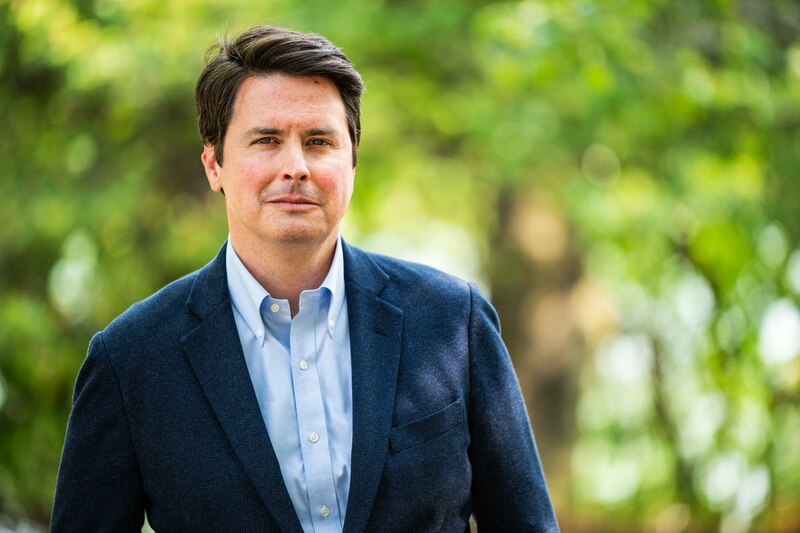
Who is Thomas Day?
Day, who has lived in Chicago since 2010, grew up in Pennsylvania and attended Penn State University. He joined the Army as a public affairs specialist, which included writing news releases, from 2002 to 2007 and was deployed to Iraq for a year. He later earned his master’s degrees from both Northwestern’s Medill School of Journalism and the Harris School of Public Policy at the University of Chicago, where he’s now a lecturer.
Day was also a reporter for about a year, spending some time in Afghanistan, and later worked as a consultant focused on local governments and public policy.
He said he also occasionally substitute teaches at Harriet Tubman Elementary School.
In 2016, Day ran an unsuccessful race for Illinois’ 7th Congressional district. Asked why he is running for school board, Day said, “because I have a kid in CPS.”
Day said he wants to ensure that schools are fully enrolled with many resources — meaning closing or consolidating underenrolled schools and building new ones. He said it’s not a good use of resources to preserve schools with few students, such as Douglass Academy High School in Austin, which enrolled 35 kids last year.
Day said he wants to involve the public in decisions about closures or consolidations, similar to how Englewood STEM High School was created, he said.
He thinks such a move would spur more integration within Chicago’s segregated schools.
Day said he will advocate to preserve funding for selective enrollment schools but also wants to “strengthen” neighborhood schools.
Day won an endorsement from 32nd Ward Ald. Scott Waguespack, 34th Ward Ald. Bill Conway, and two veterans organizations, including the one he co-founded, Illinois Veterans For Change, which advocates for Democratic veterans running for office.
As of mid-September, Day had raised just over $16,000 since launching her campaign. Of that, $5,000 came from VoteVets Political Action Committee and $6,900 from John Burns, according to campaign finance reports filed with the state’s Board of Elections.
Read Day’s full questionnaire responses.
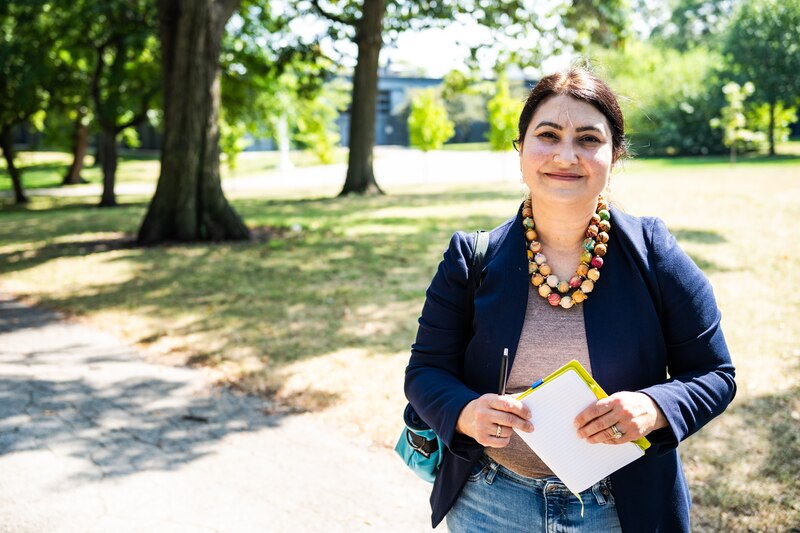
Who is Carmen Gioiosa?
Gioiosa, a former CPS teacher, grew up south of Chicago, in Blue Island and Oak Forest, and graduated from Oak Forest High School. She earned her bachelor’s degree in political science and Italian, her native language, at the University of Illinois at Urbana-Champaign and her master’s in teaching at Dominican University.
Gioisa began her career by teaching Italian at Schurz High School in Old Irving Park and later helped build a career-focused “freshman academy,” meant to help ninth graders transition into high school.
She worked at the district’s central office from 2009-2011, focusing on academic and social-emotional interventions for students with high needs, she said. She eventually earned her doctorate degree and currently teaches early childhood education at National Louis University.
Gioiosa also chairs the Local School Council at Abraham Lincoln Elementary School, where her two kids, in second and eighth grades, are enrolled.
Gioiosa said she is running for school board because she has good ideas and the experience to improve students’ lives.
“I think there’s lots of stuff we could be doing better because I want it to be the best for all the teachers out there, all the kids out there, all the families out there,” Gioiosa said.
Gioiosa said she is constantly refining her top priorities, but they currently include bringing more students up to grade level on reading and math, potentially by paying more attention to data on student achievement in second grade. CPS does currently look at data related to second grade achievement.
“I know our achievement has gone up in the city [but] I’m sorry, it’s nowhere near where it should be,” Gioiosa said.
Gioiosa wants to boost resources for preschool and second grade because those years are the foundation of a child’s education, she said. She also wants to strengthen the district’s career and technical education options, because she learned as a teacher that college right after high school is not an option for all kids, she said.
As of mid-September, Gioiosa had not reported raising any money for her campaign, according to campaign finance records filed with the state’s Board of Elections.
Read Gioiosa’s full questionnaire responses.
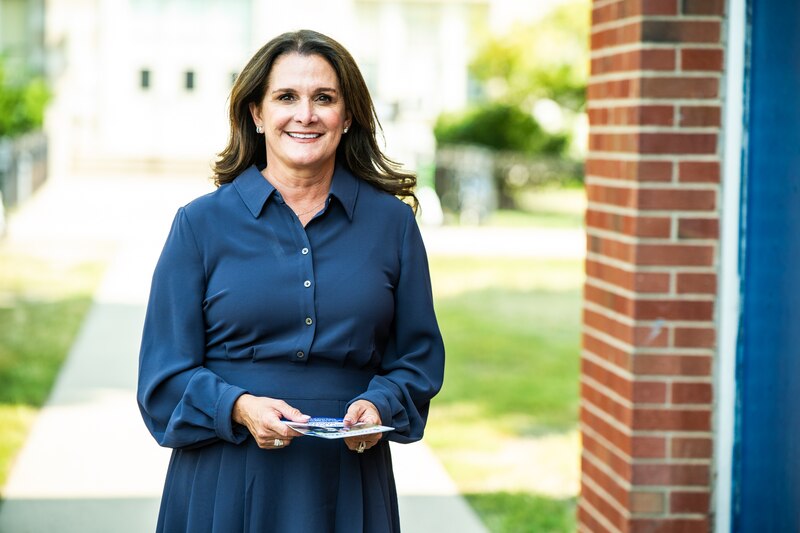
Who is Ellen Rosenfeld?
Rosenfeld, who grew up in St. Louis, moved to Chicago 30 years ago. She is married to Paul Rosenfeld, a Democratic committeeman for Chicago’s 47th Ward.
She taught for five years on the city’s South Side. She stopped teaching to raise her four children, who attended Bell Elementary School, where she served on the Local School Council. Her youngest child is currently at Whitney Young.
Seven years ago, Rosenfeld became a Family and Community Engagement Specialist at CPS, which involves communicating with families at open forums or public meetings.
Rosenfeld decided to run for school board after Illinois state Rep. Ann Williams, one of the lawmakers to shepherd the elected school board legislation in Springfield, said Rosenfeld was the kind of person who should run, she said. Williams, who met Rosenfeld through the Bell LSC, feels Rosenfeld’s experience as a parent leader and CPS employee is important for the board, Williams told Chalkbeat.
As of mid-September, Rosenfeld had raised $47,300, according to campaign finance reports filed with the state’s Board of Elections. Of that, $6,900 came from herself and $20,600 from Edelson PC and its founder Jay Edelson. She received money from the political funds of several local politicians, including $1,000 from Wlliams. She also received $1,000 from former chief of communications at CPS Rebecca Carroll.
Rosenfeld also reported $3,500 in in-kind support for consulting work with the 47th Ward Democratic Organization.
Rosenfeld earned endorsements from Williams and Sen. Robert Martwick, who had proposed paying school board members, and a slew of other elected officials, including other state representatives, Chicago alderpeople, Cook County commissioners, and U.S. Rep. Jan Schakowsky, according to her website.
Rosenfeld said her top priority, if elected, would be to improve student mental and physical health, especially because of the impact the pandemic has had on kids, she said.
“We saw students who lost their whole family, and then they came back to school and the teacher was wearing a mask, and you know, we just kept going forward,” Rosenfeld. “So we really have to talk about how safe the kids feel.”
She said she also wants the new board to become more accessible and transparent with families, potentially through town halls and listening tours, she said.
Read Rosenfeld’s full questionnaire responses.
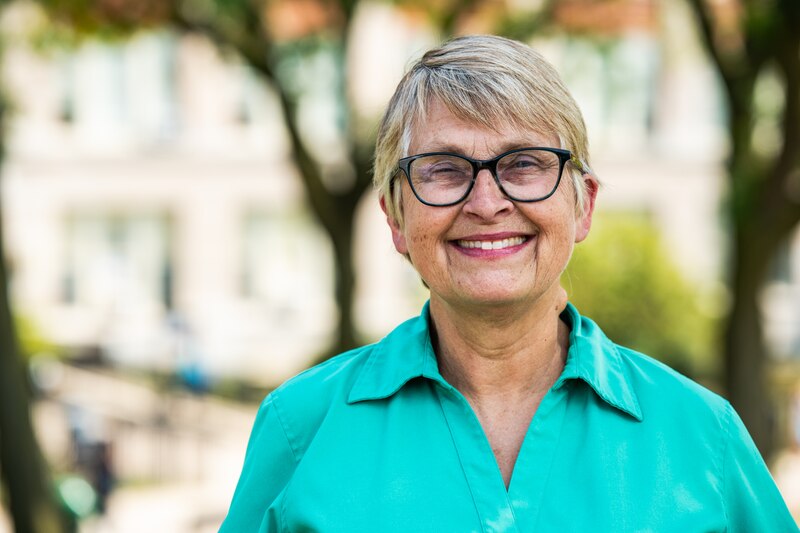
Who is Karen Zaccor?
Zaccor lived on both the East and West coasts before moving to Uptown 46 years ago, where she raised her daughter, now a CPS graduate, she said.
Zaccor was a CPS teacher for 28 years before her recent retirement. She most recently taught at Uplift Community High School in Uptown – a school she co-founded during former Mayor Richard M. Daley’s push to open 100 new schools and close many others.
Zaccor is a longtime community organizer, initially through a parent-led group in the 1980s called Parent Equalizers of Chicago. She has advocated for many issues, including full-day kindergarten, stopping school closures, and starting an elected school board, she said.
Zaccor said she initially didn’t want to run for the board but reconsidered when people in the community asked her to. She wanted to ensure that the board would “fight for the equity that we’re looking for,” she said.
“That schools in underinvested, primarily Black and brown communities get the resources and have an opportunity for self-determination for their schools, and additionally, that we have a board that is accessible and transparent,” Zaccor said.
As a board member, Zaccor wants to create more Sustainable Community Schools programs, an initiative crafted between CPS and the Chicago Teachers Union that allows schools to partner with nonprofit organizations to provide wraparound services for students and families. Uplift, the school she founded, is also a Sustainable Community School.
She also wants to push for more funding for CPS, primarily through pushing the state for more money. Zaccor also wants to find ways to make schools more energy efficient and “green” friendly, she said.
Each of Zaccor’s top priorities are also shared by the teachers union, which has endorsed her. She noted that her advocacy for Sustainable Community Schools predated the union’s support for the initiative, and that the other ideas are good for children.
Zaccor has also been endorsed by 46th Ward Ald. Angela Clay and 46th Ward Committeeman Sean Tenner.
As of mid-September, Zaccor had raised more than $13,000 since launching her campaign, according to campaign finance reports filed with the state’s Board of Elections. Of that, about $10,800 came from the Chicago Teachers Union political fund to pay for field staff.
Read Zaccor’s full questionnaire responses.
Correction: A previous version of this story misstated the number of years Karen Zaccor was a teacher. She taught for 28 years, not 25.
Reema Amin is a reporter covering Chicago Public Schools. Contact Reema at ramin@chalkbeat.org.
This story was published in partnership with Block Club Chicago.

